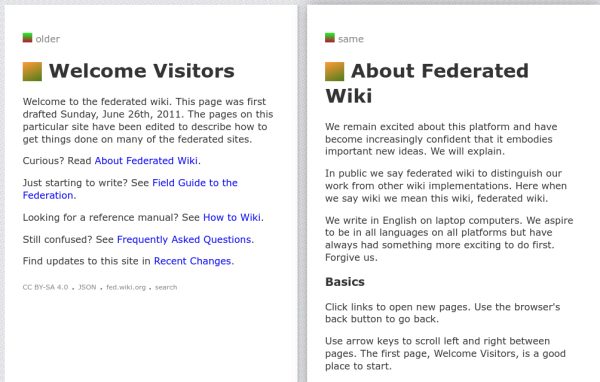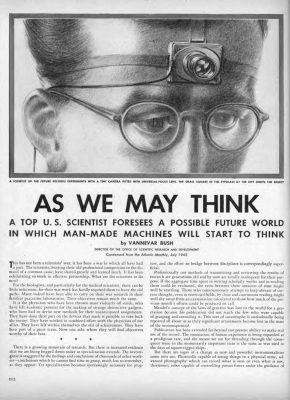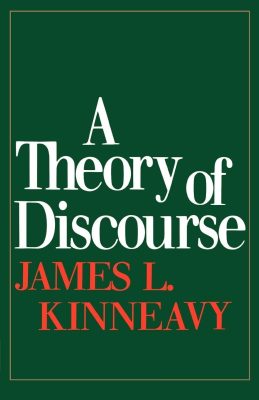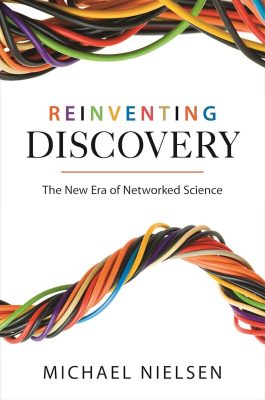Federated Education
New directions in digital collaboration
Mike CaulfieldSummary
In Federated Education, Mike Caulfield proposes a radical rethinking of how knowledge and collaboration could work in the digital age. Rather than forcing everyone into a single platform or tool, he champions a federated model — a network of individually owned spaces that interconnect without surrendering control or identity to a central authority.
Caulfield starts with an insight: most of our tools for online learning and collaboration are built around the wrong metaphor. Platforms like Twitter or learning management systems encourage short-term posting, top-down hierarchy, and centralized control. They’re great for updates — but terrible for depth, context, or collective growth over time. In contrast, federated systems like the Federated Wiki allow each participant to build their own personal space and then connect those spaces through links, citations, and shared ideas, forming a loosely woven but deeply generative network.
This model isn’t just more humane — it’s more powerful. It allows for nuance, variation, and iterative remixing. Instead of one shared document or discussion thread, you get a living network of perspectives, each evolving on its own terms. Ideas can be forked, reinterpreted, evolved and recontextualized as they spread — much like living concepts that adapt and find new meaning as they move across different minds and contexts. The goal isn’t just to communicate, but to think together, at scale, without needing to centralize, rank, or control the flow.
The stakes are high. As Caulfield argues, we’re facing massive global challenges that require large-scale, distributed problem-solving. But if our systems for thinking together are brittle, centralized, and shallow, we’ll never keep up. Federated education offers a glimpse of something better: a way to build collective intelligence across boundaries, without flattening or homogenizing human insight.
I fervently believe that amazing solutions to so many of our major problems — renewable energy, education, disease — exist out there somewhere, but they are in pieces. You have a piece of the solution and someone in Bangalore has another piece of the solution. And if those ideas find each other in ten years, we’ll save thousands of lives, but if we can help those ideas find each other in ten months, we’ll save millions. Mike Caulfield
Key concepts
- Federated, not centralized Each participant operates from their own space — no central gatekeeper, no single source of truth. It’s a network of peers, not a pyramid of power.
- The Federated Wiki A tool where users maintain their own pages but can fork, link, and build upon others’ content — enabling decentralized, contextual learning.
- From posts to ideas Unlike fleeting social media posts, this model supports ideas that evolve over time — through revision, connection, and dialogue.
- Knowledge as ecosystem Federated collaboration treats knowledge like a forest, not a file cabinet — diverse, organic, and cross-pollinated.
- A protocol for collective thinking To solve global problems, we need thinking systems that scale. This model allows collective insight to emerge without top-down control.
Federated education offers a mindset: decentralized, emergent, and designed for interconnection over control.
This idea was originally published on hapgood.us as Federated Education: New Directions in Digital Collaboration.
Big Idea Initiative is all about making connections, and sharing knowledge, thoughts, and ideas that support deep thinking and collaboration. Our goal is to create a space that sparks thinking and conversations among people whose ideas might benefit each other, even if they’re working on completely unrelated topics. We think that pushing back the limits of possibility will come as a result of the connections that diverse collaborators make together. Identifying these connections will bring the big ideas our world needs.
We need your help! If you…
- have questions or feedback about this work
- want to improve, develop, or add to this idea
- want to sponsor a prototype of this idea
we invite you to contact us: hello@bigideainitiative.org.



